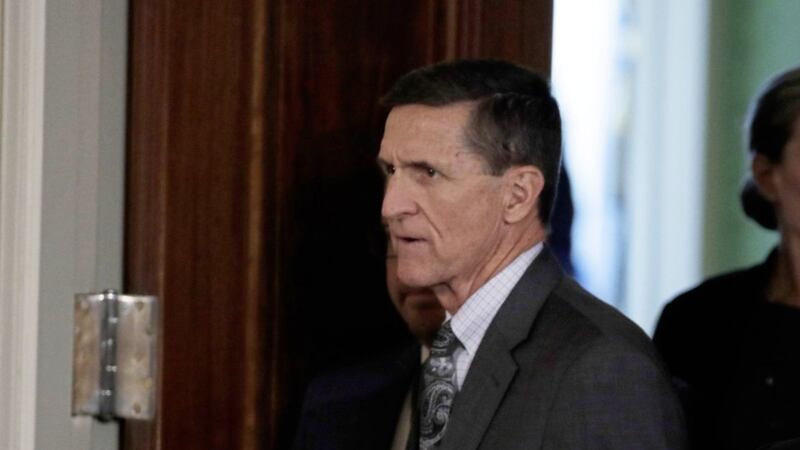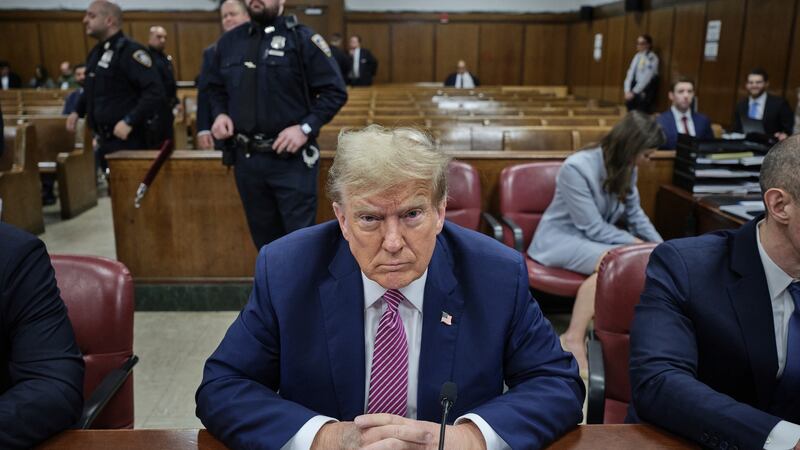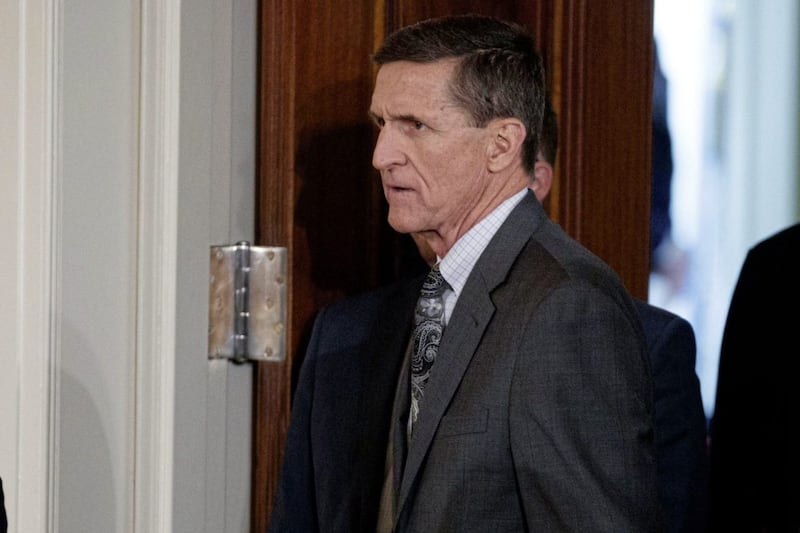US national security adviser Michael Flynn has resigned after reports that he misled vice-president Mike Pence about contacts with a Russian diplomat.
The departure has disrupted President Donald Trump's White House team less than a month after his inauguration.
In a resignation letter, Mr Flynn said he gave Mr Pence and others "incomplete information" about his calls with Russia's ambassador to the US.
The vice-president, apparently relying on information from Mr Flynn, initially said the national security adviser had not discussed sanctions with the Russian envoy, but Mr Flynn later conceded the issue might have come up.
Such conversations would breach diplomatic protocol and possibly violate the Logan Act, a law aimed at keeping private citizens from conducting US diplomacy.
The Justice Department had warned the White House late last month that Mr Flynn could be in a compromised position because of contradictions between his public depictions of the calls and what intelligence officials knew to be true based on routine recordings of communications with foreign officials in the US.
Kellyanne Conway, a close aide to Mr Trump, said on Monday that Mr Flynn continued to have the "full confidence" of the president, but on Tuesday, she said in televised interviews that the president had supported Mr Flynn out of loyalty but that the situation reached a "fever pitch" and had become "unsustainable".
"By night's end, Mike Flynn had decided it was best to resign. He knew he'd become a lightning rod, and he made that decision," she told NBC's Today show.
Asked why the White House did not move sooner after being warned by the Justice Department that Mr Flynn was at risk of blackmail, she was vague: "As time wore on, obviously the situation became unsustainable."
"We're moving on."
Mr Trump named retired Lieutenant General Keith Kellogg as the acting national security adviser. Lt Gen Kellogg had previously been appointed the National Security Council chief of staff and advised Mr Trump during the election campaign.
Mr Trump is also considering former CIA director David Petraeus and Vice-Admiral Robert Harward, a US Navy SEAL, for the post, according to a senior administration official.
A US official told the Associated Press that Mr Flynn was in frequent contact with Russian ambassador Sergey Kislyak on the day the Obama administration slapped sanctions on Russia for election-related hacking, as well as at other times during the transition.
The Washington Post was the first to report the communication between former acting attorney general Sally Yates, a holdover from the Obama administration, and the Trump White House. The Post also first reported last week that Mr Flynn had spoken about sanctions with the Russian ambassador.
The president never voiced public support for Mr Flynn after that initial report but continued to keep his national security adviser close.
White House officials sent contradictory messages about his job status. While Ms Conway was remarking that Mr Trump had "full confidence" in the retired general, White House press secretary Sean Spicer said the president was "evaluating the situation" and consulting Mr Pence about his conversations with the national security adviser.
Asked whether the president had been aware that Mr Flynn might have planned to discuss sanctions with the Russian envoy, Mr Spicer said: "No, absolutely not."
The Kremlin had confirmed Mr Flynn was in contact with Mr Kislyak but denied that they talked about lifting sanctions.
ends








